Essential Items for an Equine First Aid-Kit
Updated on 05/26/24
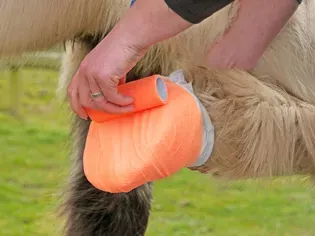
Equine First Aid: Essential Items for Every Horse Owner
As a horse owner, being prepared for emergencies is paramount to the well-being of your equine companion. A comprehensive equine first aid kit is an indispensable tool that empowers you to address minor injuries and ailments promptly, preventing them from escalating into more severe conditions.
This comprehensive guide delves into the essential items that should grace every equine first aid kit, providing you with peace of mind and the ability to respond effectively to any situation.
1. Wound Care Essentials
* Antiseptic Solution: Chlorhexidine or iodine solution to cleanse and disinfect wounds.
* Antibiotic Cream or Spray: To apply to open wounds and prevent infection.
* Sterile Gauze Pads: To absorb blood and protect wounds.
* Non-Adhesive Wound Dressing: To cover and cushion wounds, promoting healing.
* Veterinary Tape: To secure dressings and prevent contamination.
Example: A superficial cut on your horse's leg can be easily addressed with antiseptic solution, antibiotic spray, gauze pads, and veterinary tape.
2. Pain Relief and Inflammation Management
* Non-Steroidal Anti-Inflammatory Drug (NSAID): Such as phenylbutazone or flunixin meglumine, to relieve pain and inflammation.
* Acetaminophen (Tylenol): For mild pain relief in specific situations.
* Ice Pack: To apply to sprains, strains, and other injuries to reduce swelling and discomfort.
Example: Your horse develops a mild lameness due to a hoof abscess. Administering an NSAID can alleviate pain and reduce inflammation, allowing your horse to rest and recover.
3. Eye Care
* Eye Wash Solution: Saline solution to flush out debris and irritants from the eyes.
* Artificial Tears: To lubricate and soothe irritated eyes.
* Antibiotic Eye Ointment: To treat infections and prevent corneal ulcers.
Example: If your horse gets something in its eye, flushing it with eye wash solution and applying artificial tears can provide immediate comfort and prevent complications.
4. Digestive Issues
* Activated Charcoal: To absorb toxins in cases of poisoning or ingestion of harmful substances.
* Laxative: To encourage bowel movements in cases of constipation.
* Antacid Paste: To neutralize stomach acid and relieve digestive discomfort.
Example: If your horse accidentally ingests a poisonous plant, administering activated charcoal can help prevent absorption of the toxins into the bloodstream.
5. Respiratory Support
* Albuterol Inhaler: To treat respiratory distress caused by allergies or allergies.
* Oxygen Tank: For supplemental oxygen in emergencies.
* Nasal Dilators: To open up nasal passages and improve airflow.
Example: If your horse experiences an allergic reaction or has difficulty breathing, an albuterol inhaler or oxygen tank can provide immediate relief and prevent respiratory distress.
6. Other Essentials
* Thermometer: To measure body temperature.
* Flashlight: For examining wounds or administering medications in low-light conditions.
* Scissors: To cut dressings or bandages.
* Tweezers: To remove splinters or other foreign objects from wounds.
* First Aid Manual: For guidance on emergency procedures and treatment options.
Example: A fever in your horse may indicate an infection or illness. Using a thermometer to monitor its temperature and consulting a first aid manual can help you determine the appropriate course of action.
7. Storage and Maintenance
* Durable Bag or Case: To protect the contents from damage and keep them organized.
* Regular Inspection: Check the contents of your first aid kit regularly and replace expired or used items.
* Sterilization: Clean and disinfect tools and dressings to prevent contamination.
Conclusion
Equipping yourself with a comprehensive equine first aid kit empowers you to handle minor emergencies with confidence. By following these guidelines and incorporating these essential items, you can be prepared to address common equine ailments, stabilize your horse until veterinary assistance arrives, and potentially prevent serious health consequences. Remember, a well-stocked first aid kit is an investment in your horse's well-being and peace of mind for every horse owner.
Explore More Pets

Pony Breeds
The Difference Between Horses and Ponies
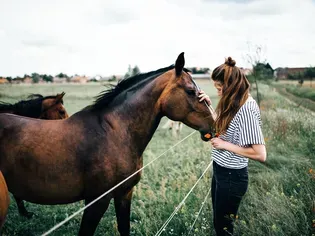
Horse Diseases & Conditions
What Do I Do If My Horse Colics?
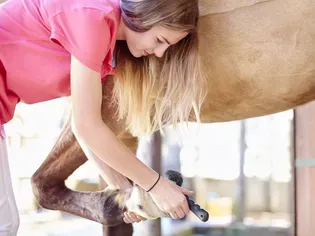
Pony Breeds
Horse and Pony Care by the Day, Week, Month and Year
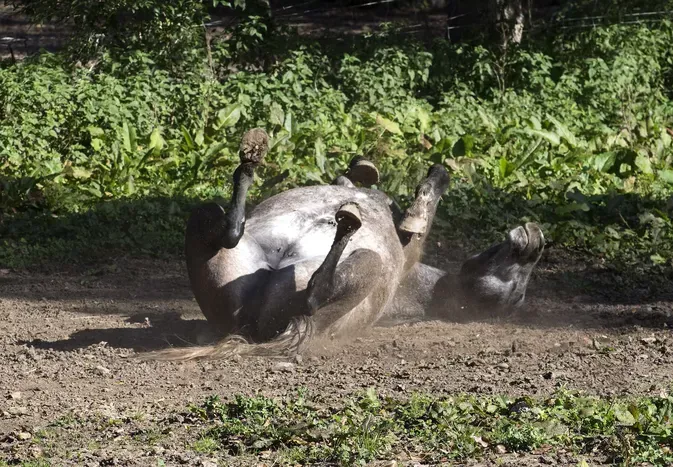
Horse Grooming
Mange in Horses
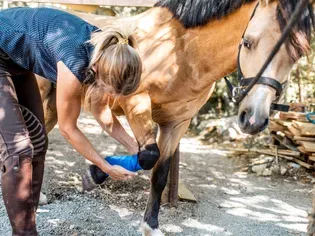
Horse Diseases & Conditions
Grease Heel in Horses
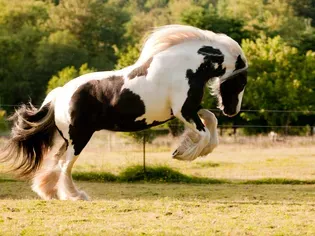
Light Horse Breeds
Gypsy Vanner Horse Breed Profile
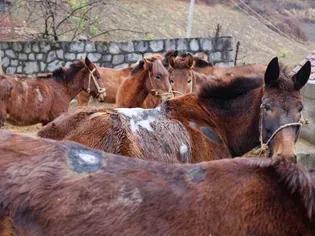
Horse Diseases & Conditions
Girth Galls and Saddle Sores
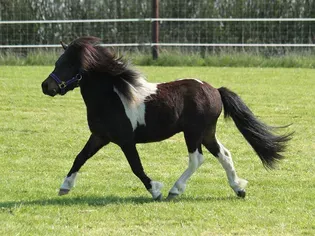
Pony Breeds
Shetland Pony Breed Profile
